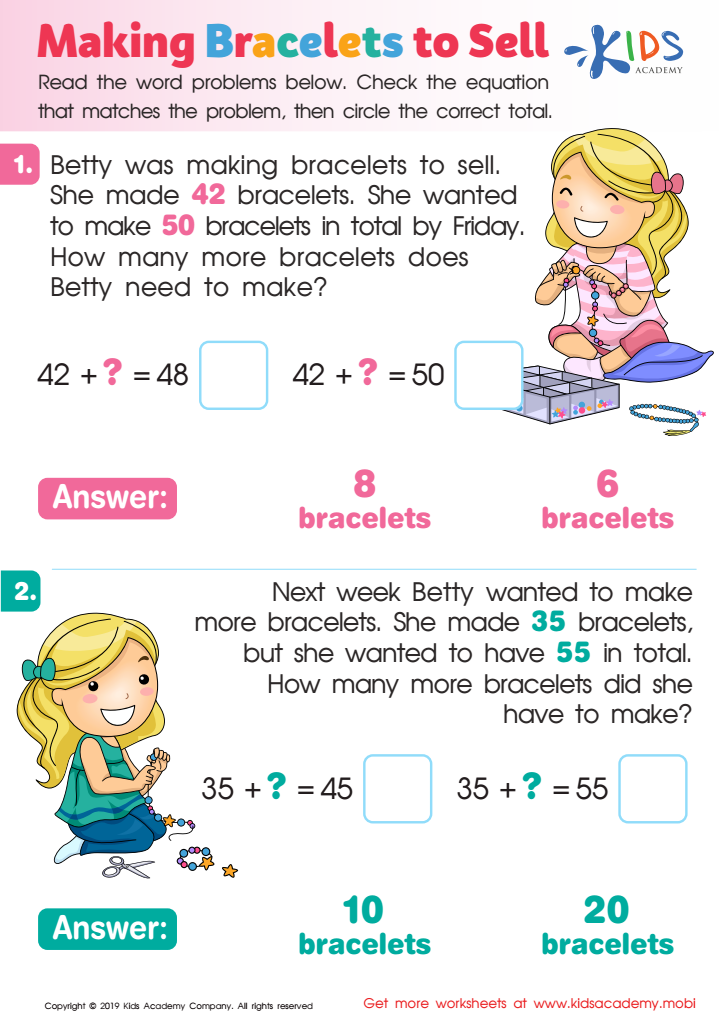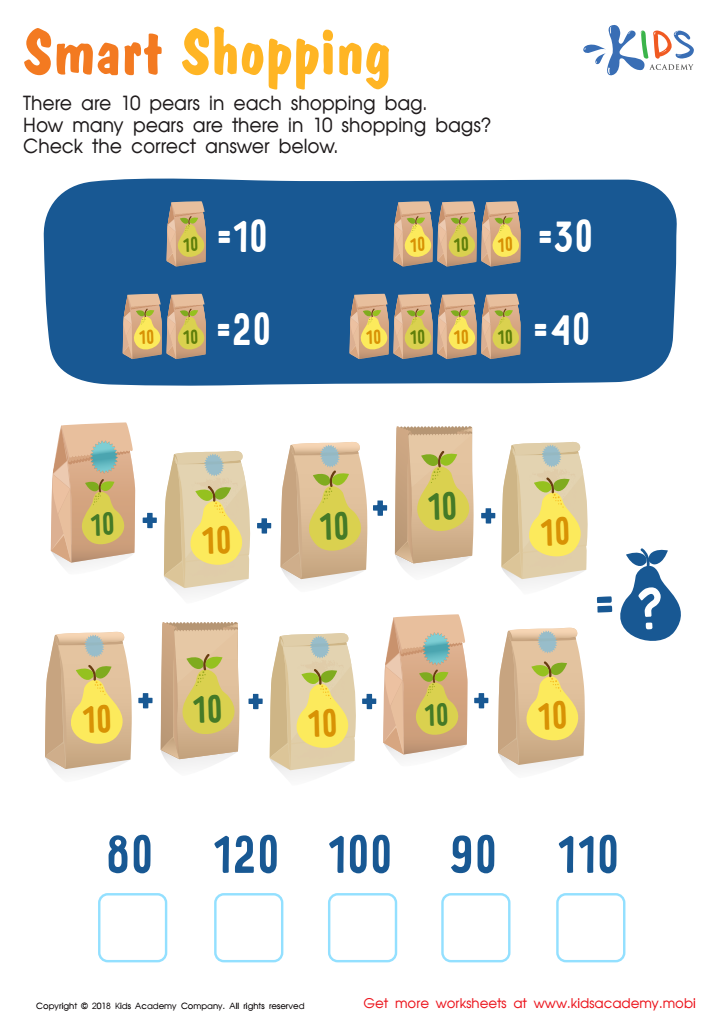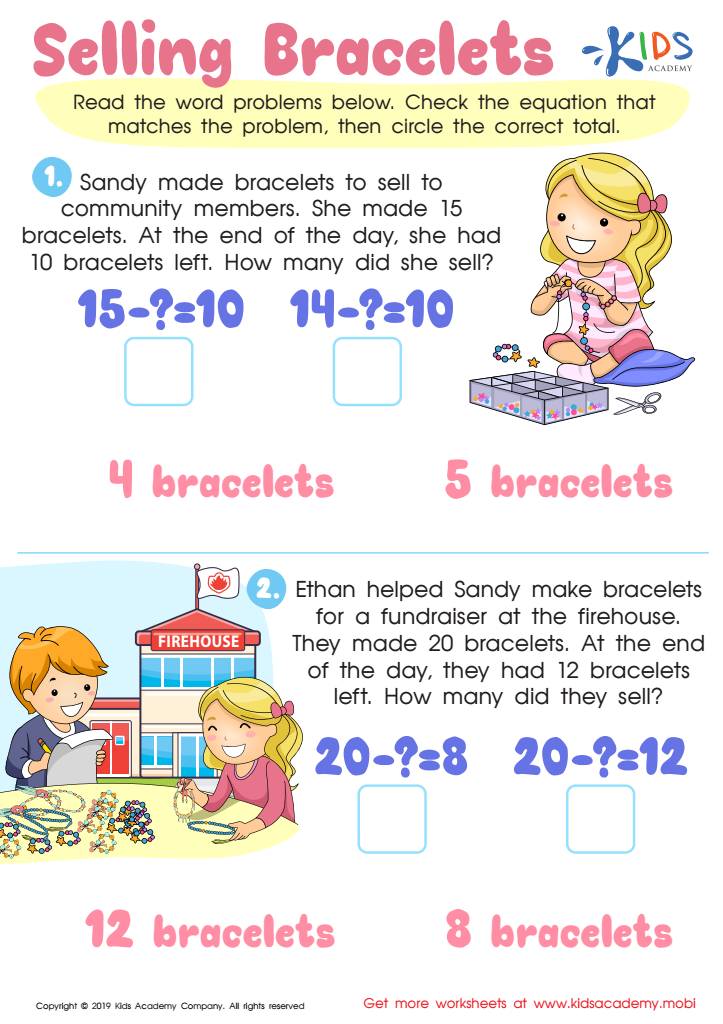Money management skills Easy Math Worksheets for Ages 3-5
3 filtered results
-
From - To
Empower your preschoolers with essential money management skills using our Easy Math Worksheets designed for ages 3-5. These beginner-friendly worksheets introduce young learners to basic financial concepts through engaging and interactive activities. Children will learn to recognize different coins and bills, understand their values, and practice simple counting skills. Our carefully curated worksheets promote financial literacy at an early age, making money management fun and accessible. Ideal for parents and educators, these printable resources lay a solid foundation for your child's future financial success. Set them on the path to savvy spending and saving habits with Kids Academy's easy and effective worksheets.


Making Bracelets to Sell Worksheet


Smart Shopping: Trade Tens for a Hundred Worksheet


Selling the Bracelets Worksheet
Parents and teachers should care about teaching money management skills, and easy math to children aged 3-5 because it lays the foundation for their future financial literacy and critical thinking abilities. At this young age, children's brains are like sponges, absorbing information rapidly. Introducing money concepts early helps them become comfortable with handling money and understanding its value. Simple activities such as identifying coins, learning to count, and recognizing numbers can make math less intimidating and more relatable.
Learning these skills early can also instill a sense of responsibility and discipline. For example, when children comprehend the basics of saving, spending, and sharing, they are more likely to develop good financial habits that last a lifetime. Financial literacy is a crucial life skill, and marshaling these concepts early reduces the risk of future financial missteps.
Furthermore, incorporating money management in early education enhances problem-solving and decision-making skills. Children learn to make choices based on available resources, which can translate into better budgeting and planning abilities as adults. Effective money management skills contribute to overall self-reliance and foster confidence in handling various life situations. By prioritizing these lessons, parents, and teachers give children a significant head start toward a balanced and informed financial future.
 Assign to My Students
Assign to My Students




















